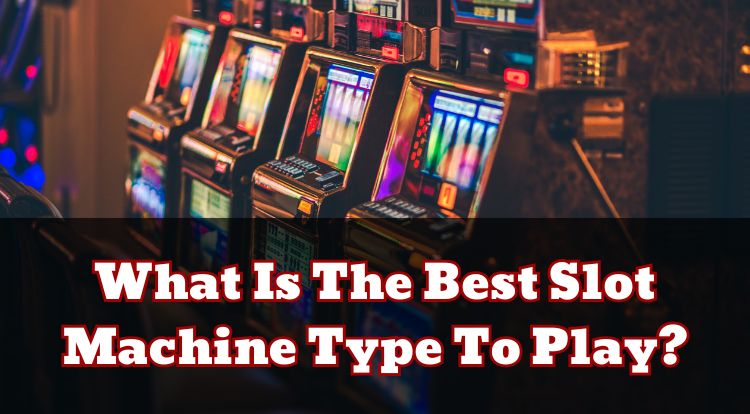How Do Slots Know When to Pay Out? Slot Machine Secrets
If you have ever sat in front of a slot machine and wondered how it decides when to pay, you are not alone. For many, the process feels hidden behind flashing reels and colourful symbols. In reality, slot games are built on technology that is designed to be both fair and unpredictable.
This blog explains how regulated slot machines generate outcomes, what makes online games different from those in land-based casinos, and how terms like Return to Player (RTP) and volatility fit into the picture. By the end, you will have a clearer understanding of how these popular games really work.
How Do Slot Machines Actually Work?
Modern slot machines, whether online or in a physical venue, run on a system known as a Random Number Generator (RNG).
An RNG is a computer programme that constantly produces sequences of numbers. These sequences are created so quickly that they are generated even when nobody is playing.
When you press the “spin” button, the game captures one of these sequences. That number decides where each reel stops, mapping directly onto the symbols you see on screen. This means:
- Each spin is an independent event.
- Previous spins have no effect on the outcome of future ones.
Because of this, slot games are random games of chance.
In the UK, slot games must pass strict technical testing. Before being offered to players, each title is checked against standards set by the Gambling Commission to make sure results remain unpredictable and not biased towards or against players.
What Role Does RNG Play in Slots?

The RNG is at the heart of every slot. It translates numbers into reel positions at the exact moment you spin.
While the reels may look like physical wheels, in most online games they are digital, which allows designers to give certain symbols more or fewer “positions”.
For example, a jackpot symbol may appear in fewer positions than a common fruit symbol. This is how the game balances frequency of possible wins with the size of potential payouts.
It is important to note that the RNG is not a pattern. It is designed to be unpredictable, so even if you were to watch a game for hours, there would be no way of knowing when a particular symbol will appear. Independent testing laboratories confirm that the RNG is functioning as intended before a slot game is approved.
How Do Online Slots Compare to Land-Based Slots?
The core mechanics are the same, but the way you experience the game can differ.
- Game Selection: Online sites can offer hundreds of titles because they are digital, while physical venues are limited by space.
- Betting Limits: Online slots often allow very low stakes, sometimes from as little as 10p. Land-based machines might have higher minimums, depending on the game.
- Return to Player (RTP): Online slots usually display this figure in the game menu. In a venue, you may need to look at the machine’s information panel or ask for help.
- Potential Payouts: Online, any winnings are added to your account balance. In person, payouts may come in cash, coins or printed tickets.
Although the way you access them is different, both online and land-based slots in the UK must meet the same fairness standards.
Understanding Return to Player (RTP) in Slots
The RTP rate is a percentage that represents the expected proportion of stakes a slot is designed to return over time.
For example, a game with a 95% RTP is modelled to return £95 for every £100 wagered in the long term. The difference is what the operator retains as the “house edge”.
It is important to understand that the RTP is a theoretical figure. It is not a promise of what will happen in your own playing session. You could play and may receive returns above or below the advertised percentage.
Some slots are released with more than one RTP setting, which is why it can be helpful to check a game’s information page before playing.
Do Slots Have Set Payout Cycles?
A common belief is that slots are “due” to pay out after a series of losses, or that machines go through “hot” and “cold” phases. In fact, outcomes are entirely independent.
Each spin is random, and what happened before has no effect on what comes next. Long losing streaks or clusters of wins can potentially occur, but these patterns happen naturally in random sequences.
This connects to a common misunderstanding called the gambler’s fallacy. This is the mistaken belief that if one outcome happens repeatedly, the opposite is more likely next time. In slots, the probability of a symbol appearing is the same on every spin, regardless of what has just happened.
What Are Slot Volatility and Variance?
While the RTP gives a theoretical return, volatility (also called variance) describes how that potential return might be distributed:
- Low volatility slots: Can offer potentially more frequent smaller wins.
- High volatility slots: Offer the possibility for infrequent larger wins.
Two games might both have a 96% RTP, yet feel completely different to play because of their volatility. This information helps set expectations about how often wins may appear, but because of the RNG, outcomes remain unpredictable. Volatility does not guarantee how much you might win or how long it may take.
Are Slot Machine Payouts Fair and Regulated?
In the UK, slot machines are regulated by the Gambling Commission, which ensures that games meet strict technical standards.

Independent laboratories test games to confirm that RNG outcomes are random and fair. Regulators also check that the RTP shown in a game matches the approved design. This means that when you play on a licensed site or in a regulated venue, the games have already been through compliance checks.
You can also find details such as rules, RTP, and paylines within the game menu or printed on the machine itself. These details show how a slot is expected to perform over time, though results will always vary.
Explore Online Slot Games at Red Casino
Red Casino is licensed by the UK Gambling Commission, meaning it is required to meet all regulatory standards for fairness, player safety, and transparency.
Our game library includes a wide selection of online slots with published RTP information and clear rules available in each title.
If you choose to play, it may help to:
- Set a budget and stick to it.
- Take time to check the paytable and rules, so you understand how a game works.
- Use safer play tools, such as deposit limits or reminders, which can support you in managing how long or how much you spend.
Remember, slots are random games of chance. There is no strategy or timing method that can change the outcome of a spin, and winnings can never be guaranteed.
*All values (Bet Levels, Maximum Wins etc.) mentioned in relation to these slot games are subject to change at any time. Game features mentioned may not be available in some jurisdictions.
**The information provided in this blog is intended for educational purposes and should not be construed as betting advice or a guarantee of success. Always gamble responsibly.




